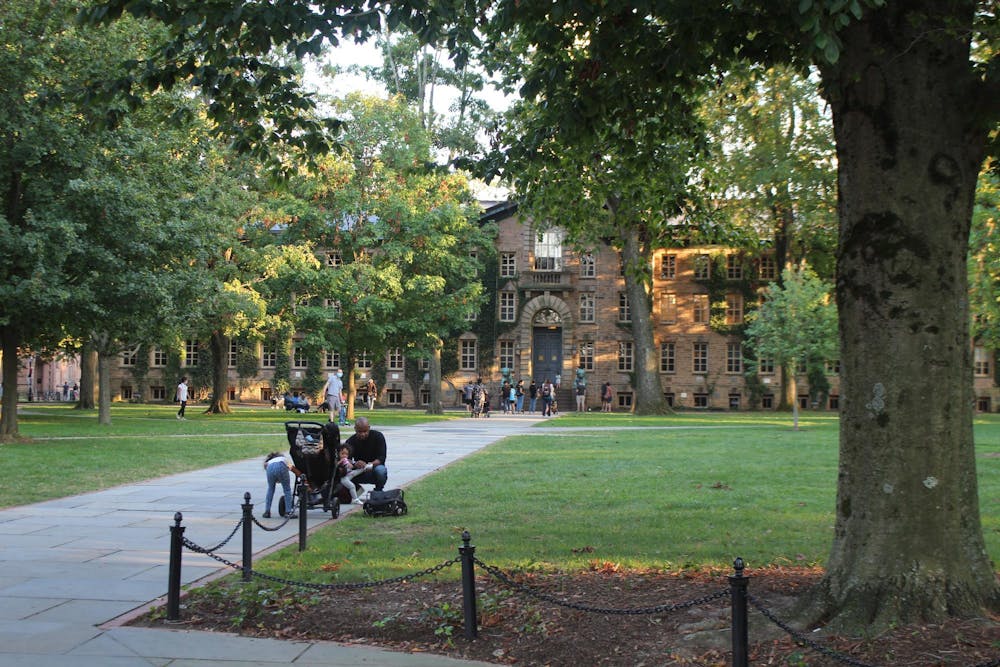New proposed amendments to Title IX are changing the ways Princeton addresses student pregnancy.
In an email to undergraduate students sent on March 19, the University announced three changes to their policies and resources for pregnancy and childbirth.
The administration has updated its current Policy on Discrimination and Harassment to include a broader range of conditions related to pregnancy, and the school has adopted a new Student Pregnancy/Childbirth Accommodation Policy. They have also designed a new webpage that provides students and faculty with clear information about pregnancy and childbirth resources.
“Princeton University is committed to maintaining an inclusive environment that is free from discrimination and harassment,” the announcement stated.
These changes come amid a proposal from the U.S. Department of Education to amend Title IX regulations that protect against sexual misconduct and free expression of gender identity. While the Biden-Harris Administration intended to finalize regulations in May 2023, they have now been delayed twice.
“Pregnancy and childbirth were already included as protected characteristics in the Policy on Discrimination and/or Harassment but we are updating the policy in response to new federal regulations,” University Spokesperson Jennifer Morrill wrote in a statement to The Daily Princetonian.
“Those regulations expand and clarify the definition of pregnancy and childbirth to include ‘pregnancy, childbirth, termination of pregnancy, or lactation’ as well as ‘medical conditions relating to’ and/or ‘recovery from’ these conditions,” Morrill continued.
The process on the federal government’s side began in 2022 “in celebration of the 50th anniversary of Title IX.”

A fact sheet released to the public summarized the changes, stating, “these proposed regulations will advance Title IX’s goal of ensuring that no person experiences sex discrimination in education, that all students receive appropriate support as needed to access equal educational opportunities, and that school procedures for investigating and resolving complaints of sex discrimination, including sex-based harassment and sexual violence, are fair to all involved.”
The new Student Pregnancy/Childbirth Accommodation Policy, according to its website, was “implemented in the context of the University’s broader Policy on Discrimination and/or Harassment” and will comply with the proposed Title IX amendments, as well as New Jersey state laws.
The policy further defines pregnancy and childbirth, provides information about available accommodations for students and faculty, and explains processes for confidentiality, record retention, and requesting leaves of absences.
The policy prescribes that any University employee, aside from those designated as confidential resources — such as Sexual Harassment/Assault Advising, Resources and Education (SHARE), Counseling and Psychological Services (CPS), and chaplains at Office of Religious Life — who learns of a student’s pregnancy must share the contact information for the Title IX coordinator with the student.

The Title IX coordinator in turn is required to inform the student of the sex discrimination policy, available accommodations, “Options, if any, on a voluntary basis to participate in any separate and comparable portion of the University’s education program or activity; Options regarding a voluntary leave of absence; The availability of lactation spaces;” and grievance procedures for any potential discrimination complaints.
The policy notes, “Princeton University respects the sensitive nature of disclosing that a student is experiencing pregnancy or related conditions and works to provide appropriate accommodations for students while maintaining the highest level of confidentiality possible.” It also states that records including requests for accommodations, documentation of approved accommodations, and records of discrimination complaints will be retained for seven years.
The new website also includes information about scheduling options for quiet rooms that offer private spaces for breastfeeding and “other purposes.”
Morrill emphasized convenience as the primary reason for designing the new webpage.
“These webpages will allow students to more easily locate all available resources and determine which of those resources would be helpful to them,” she wrote.
When asked if students have raised concerns about pregnancy and childbirth resources previously, Morrill cited past collaboration between the administration and the graduate school.
“Over the years, students have raised points for improvements around the childbirth and adoption accommodation and changes have been made in response including the current Childbirth and Adoption Accommodation Policy [which] was adopted by the Faculty Committee on the Graduate School, after the Graduate Student Government (GSG) and Graduate School staff worked together on the proposal in 2018,” she wrote.
Despite these earlier revisions, one legal scholar at the graduate school, Dr. Saskia Stucki, reported her withdrawal from the University’s Fung Global Fellowship in May 2023 citing sex discrimination as the cause for her departure.
The University granted Stucki ten weeks of maternity leave and offered half of her original salary, which she argued would not be enough. She filed complaints with the University’s Office of Gender Equity and Title IX Administration and the Department of Education’s Office of Civil Rights, but her requests were ultimately disregarded.
Since students and faculty received notice of these changes, Morrill said that the University has “received only limited feedback … but that feedback from students as well as staff and faculty has been overwhelmingly positive.”
A member of Princeton Pro-Life interviewed by the ‘Prince’ expressed support for the changes.
“We’ve talked about this, because we’re really committed to building a culture of life,” Princeton Pro-Life President Nadia Makuc ’26 said, which she defined as a culture “where mothers feel supported enough to be able to have their children. Broadly, a culture of life is having a society in which there are the resources, the community, the values, such that every human life is valued,” she said.
Makuc noted that to whatever extent pregnancy during college and graduate school is possible, the University announcement represented a discussion regarding “this dichotomy of being a mother and having a career.”
She explained that Princeton-Pro Life has held conversations about their values and balancing having children and starting a family with achieving career-oriented goals, which often conflict in an environment like Princeton’s.
“That’s not something that we can necessarily fix, but I think in my own time here, it’s been really helpful to just have conversations with other people about what’s beyond. What do I want for my life beyond using my degree in this way?” she added.
Princeton Students for Reproductive Justice (PSRJ) did not provide comment by the time of publication.
Questions, concerns, and accommodations related to pregnancy and childbirth will be managed by the Office of Gender Equity and Title IX Administration, along with the Office of the Dean of Undergraduate Students, the Graduate School, and relevant academic departments.
Rebecca Cunningham is a senior News writer for the ‘Prince.’
Please send any corrections to corrections[at]dailyprincetonian.com.








